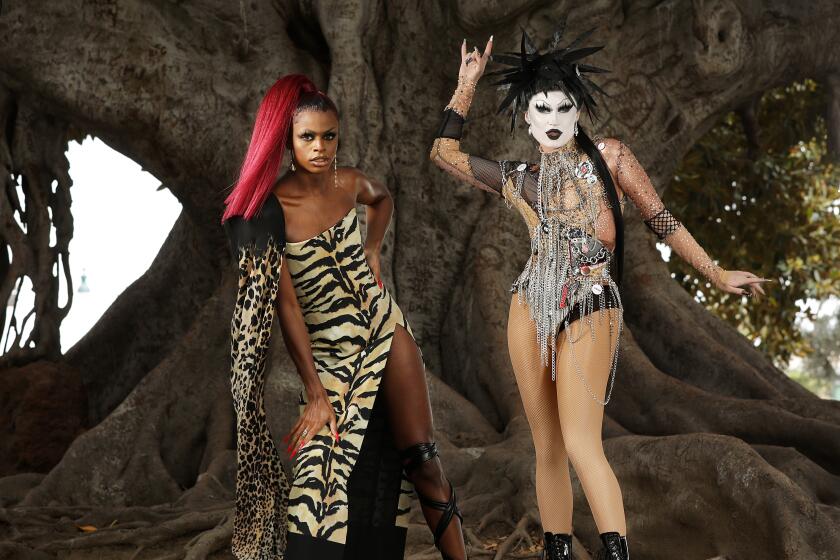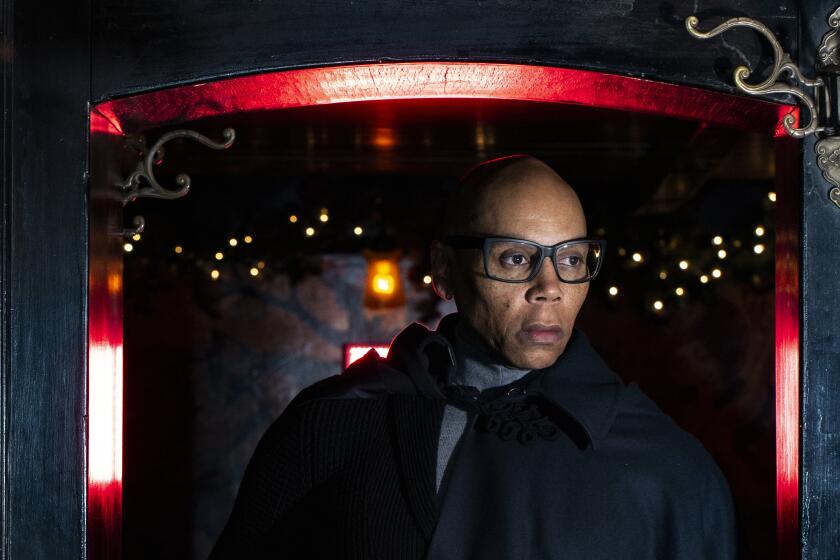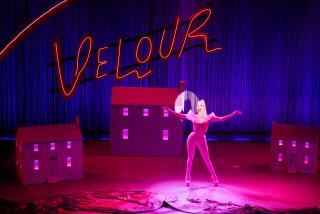How a campy game show gag became ‘Drag Race’s’ most daunting challenge
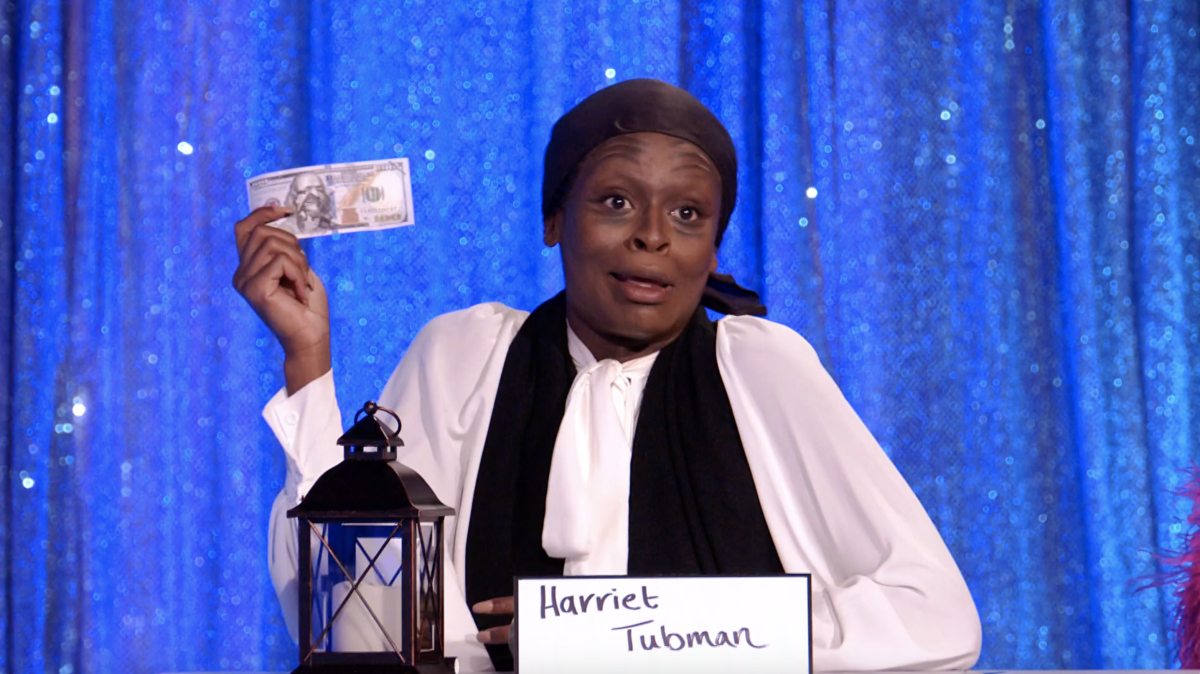
When it comes to “RuPaul’s Drag Race,” there is no challenge more legendary — or more daunting — than “The Snatch Game.” A staple of the Emmy-winning reality TV competition, now in its 14th season, this “Match Game” riff allows the likes of Beyoncé and Liza Minnelli to share the stage with figures like Melania Trump and Marlene Dietrich as every drag contestant puts their impersonation skills to the test.
Since its arrival in the show’s second season, “The Snatch Game” has solidified itself as the moment in any given season when RuPaul and his fellow judges can suss out who can truly go all the way. This is because the challenge distills the essence of what a great drag queen — someone worthy of being crowned “America’s Next Drag Superstar” — needs in her arsenal. There’s humor, of course. And the ability to think on the spot. But the challenge also demands that queens excavate pop culture to deliver killer lines, all while illuminating something about their own approach to drag.
One of the reasons “Snatch Game” looms large over this now globe-spanning franchise is how perfectly it captures what “RuPaul’s Drag Race” first envisioned itself as: a showcase for the best and brightest in contemporary drag culture that harkens back to 20th century queer culture while modeling and uplifting a decidedly 21st century queer sensibility.
As Tom Fitzgerald and Lorenzo Marquez put it in “Legendary Children: The First Decade of RuPaul’s Drag Race and the Last Century of Queer Life,” when the queens play “Snatch Game,” they are “paying tribute to a form of drag that made huge inroads into mainstream acceptance of queer performers and performing styles in twentieth-century America.” Impersonating beloved divas such as Judy Garland, Donna Summer, Cher and Britney Spears is a time-honored tradition. Yet here, as in every other “Drag Race” episode, the queens are tasked with honing their own brand of drag for an audience of one.
As they vie for the top prize on VH1’s Emmy-winning reality show, Gottmik and Symone discuss what makes L.A. — and its drag scene — so distinctive.
At the root of this wordplay-heavy game is one simple dictum: Make RuPaul laugh. With Ru living his own Gene Rayburn fantasy on the show, “The Snatch Game” lives and dies by how much the bespectacled host is enjoying himself. Every time a queen is called to offer her answer to the game’s ridiculous prompts (“There’s a new dating app for drag queens. When you join, the first question they ask is: ‘How big is your [blank]?’”) she has the chance to shine. Or flounder.
When coaching the queens, Ru has recently settled on a well-worn piece of advice: Keep it simple. “All you bitches come in here and think you’re Meryl Streep,” he mused during a Season 12 coaching session. “Why not stay a little close to home? That way you don’t have to work so hard.”
There are many ways to fail at “The Snatch Game.” You can pick a thin sketch of a character (like the “Cash me outside” girl). You can create one-note joke performances (like Whoopi Goldberg being obsessed with weed). You can botch an iconic artist who may not lend themselves to being sent up (see the many attempts to make Beyoncé happen). You can struggle volleying jokes back at Ru (regardless of who you pick; this is something queens whose first language isn’t English clearly struggle with). But there is always one surefire way to win.
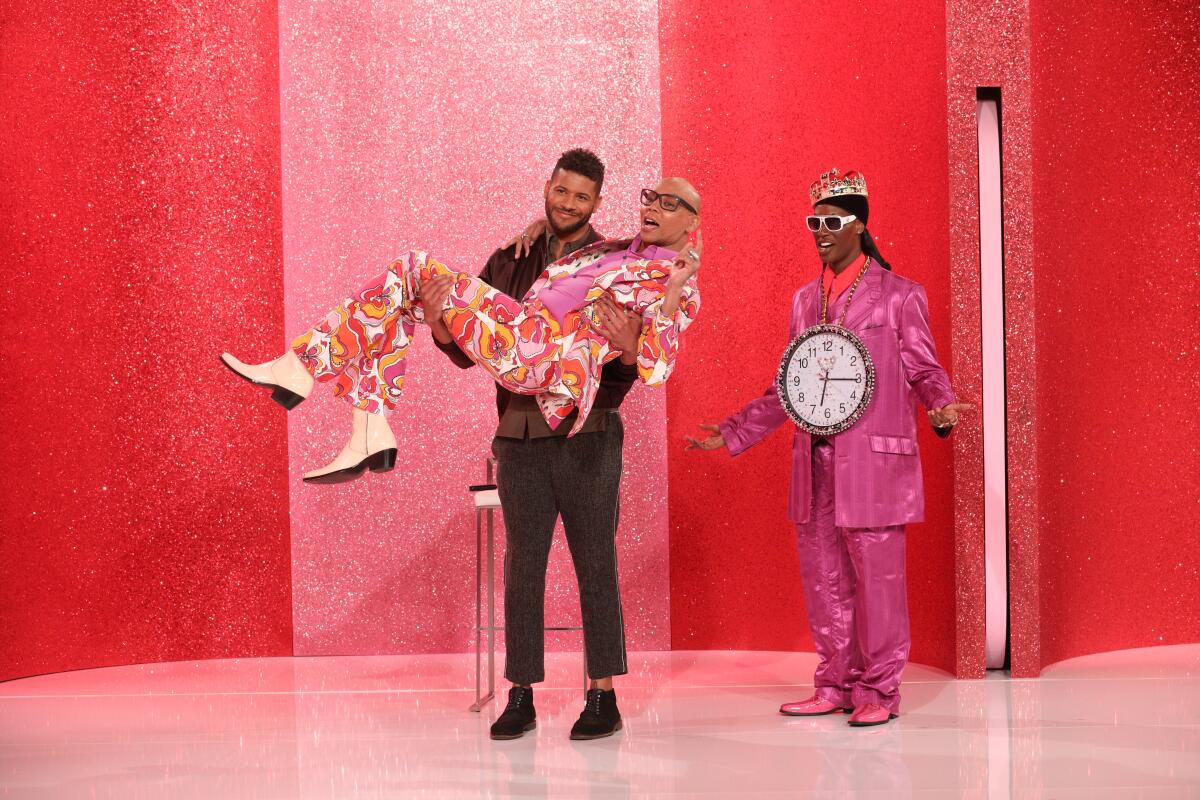
RuPaul has never asked his queens to become award-winning actors in the span of a television episode. Instead, he’s used this game show format as yet another way to test them. To see how (and if!) they manage to fulfill the brief. To show why they deserve a chance at the crown. What distinguishes these takes on pop divas, historical figures and reality TV personalities from those impersonators of yore (your Jim Baileys doing Judy Garland on stages big and small, for instance) is this imperative to reveal something of themselves in their performances. Bailey, after all, wanted to disappear into Judy, not shine through her.
But for “Drag Race” contestants, this is a desire echoed over and over again from the judges’ table week in and week out. No matter the challenge, they’re called to tap into the self-revelatory aspect of drag.
One need only look at recent winners of the challenge to witness queens who have navigated this tightrope of a walk with the requisite charisma, uniqueness, nerve and talent the series demands. Aquaria, for instance, sailed to a win back in Season 10 by hewing close to her own personality: “Melania is just as cold and aloof as I am,” she explained. “So I thought I’d use my weakness to my advantage.”
‘Drag Race’ host and Emmy winner RuPaul breaks new ground with his Netflix series ‘AJ and the Queen.’
Knowing she’d be underestimated as a “look queen,” the eventual winner played not only to Ru’s comedic sweet spot (low-hanging political humor) but did so while delivering a just-skewed-enough version of the former first lady (“Any hole is a goal!”) that made her stand out. Like all great “Snatch Game” performances, the choice, the lines, the look and the delivery told a story. And, more importantly, they told Ru something about Aquaria herself — in this case, that there was humor to be found even in the chilliest and unlikeliest of places.
Similarly, Gottmik’s choice last season to cannily weaponize her own vocal fry to deliver an utterly uncanny take on Paris Hilton helped cement her drag as being in conversation with notions of frilly femininity; Symone’s funny bits as Harriet Tubman (yes, really) likewise placed her drag squarely in relation to Black history. Silky Nutmeg Ganache’s bold take on Ts Madison back in Season 11 allowed her to harness her larger-than-life charm to shut down her competition, many of whom had labeled her as too much, while Shuga Cain played up her own firecracker energy in a spirited portrayal of Charo in all her cuchi-cuchi glory. Queens are rewarded for finding the right balance between playing a character and playing themselves. Or, rather, showing who they are by playing someone else: a meta-commentary on the function of drag as RuPaul understands it.
Therein lies the crux of any great modern “Snatch Game” performance. Rooted in pop culture (or even history, as Rosé’s heavily accented Mary Queen of Scots proved last year), the queens have to create a character that shows range but also (ideally) extends their finely crafted brand of drag. Such a tailored choice needs to make Ru laugh and wow the judges, but it also needs to tell them something about the queen’s own voice, their humor and ultimately their point of view.
Perhaps Miss Vanjie, who knows a thing or two about bombing this particular challenge, put it best: “You don’t do good, bitch, everybody’s gonna remember your Snatch Game. Ain’t no if and a but. Whatever you do is gonna follow you like the shadow follow Peter Pan and haunt you til death do you part.”
More to Read
The complete guide to home viewing
Get Screen Gab for everything about the TV shows and streaming movies everyone’s talking about.
You may occasionally receive promotional content from the Los Angeles Times.
